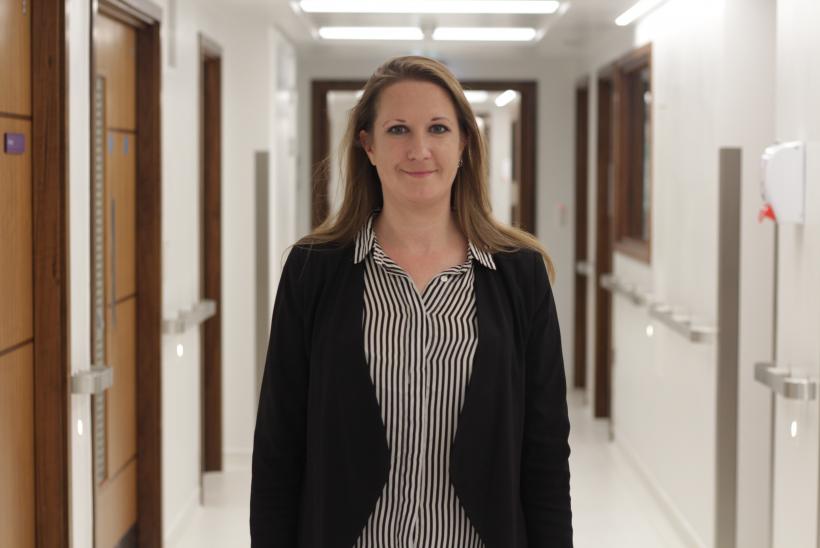An interview with Ms Addison this International Day of Persons with Disabilities
Ms Anne Addison, Clinical Lead Occupational Therapist for the Neurodisability Service, chats about her work this International Day of Persons with Disabilities.
Neurodisability is an umbrella term for conditions linked to issues involving the nervous system and includes conditions such as cerebral palsy, autism and epilepsy; often people have more than one of these conditions. “Neurodisability describes a group of long‐term conditions that may be present at birth or developed later and are attached to an impairment of the brain and/or neuromuscular system which results in functional problems. The impact may include difficulties with movement, cognition, hearing and vision, communication, emotion and behaviour.” Ms Addison explains.
Occupational therapists at GOSH work with children and young people to help them overcome barriers to doing activities. “Basically, they help people, including children, do the things they want to, have to and need to do.” Ms Addison works in the Neurodevelopmental Assessment Clinic and the Developmental and Augmentative Communication service at GOSH. She works with children with a wide range of neurodevelopmental difficulties and disabilities.
“The Neurodisability Service at GOSH specialises in working with children with specific disabilities e.g. cerebral palsy or epilepsy or presenting difficulties such as dysphagia or movement problems. The work of the service includes diagnosing the condition, while at other times clinicians provide advice and recommendations for management and/or intervention.” Ms Addision says. “Occupational therapists work as part of the wider team supporting children, young people and their families in the service.”
“As the impact of Neurodisability can include lots of different areas, our role is very broad and includes supporting children and young people engage in activities (occupations) at home, school or in the community.” Ms Addison continues, “occupational therapists are skilled in supporting individuals to develop new skills or to use equipment so they can have greater independence and satisfaction in all aspects of life.”
Ms Addison explains her favourite part of her role, “I work with children and young people who have communication difficulties as a result of their Neurodisability. The part of my job that I enjoy the most is seeing children develop their ability to communicate with others and being able to engage more independently in occupations that are important to them. For example, being able to ask for something in a shop or to take part in a game with their friends at school.”
Find out more about the Wolfson Neurodisability Service here


